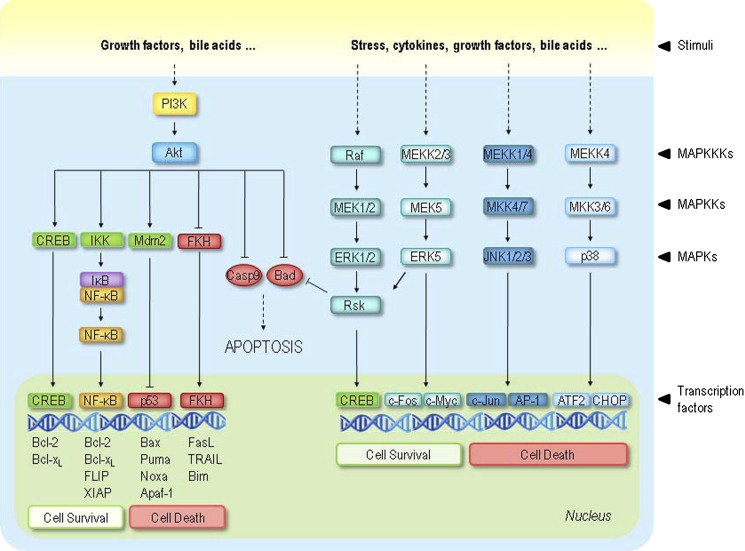Fig. 2.
Schematic representation of the interplay between cellular survival signaling and apoptosis regulators. Cell survival requires the active inhibition of apoptosis, which is accomplished by reducing the expression of pro-apoptotic factors as well as promoting expression of anti-apoptotic factors. Survival pathways may be triggered by a wide variety of extracellular signals, such as growth factors, stress, proinflammatory cyto kines, and bile acids. Activation of Akt results in inhibition of pro-apoptotic factors, such as Bad and caspase-9, and activation of FKH, CREB, and NF-κB transcription factors, all involved in cell survival regulation. The MAPK pathways include ERK, JNK, and p38 cascades, all of which contain the same series of kinases. Although ERK signaling is considered mainly cytoprotective, JNK and p38 are referred to primarily as stress-activated proteins. The effect of MAPK pathways on survival is mediated, at least partly, by activation of ribosomal S6 kinase (RSK) family members. Much like Akt, RSKs inactivate Bad and activate CREB, ultimately leading to cell survival.

